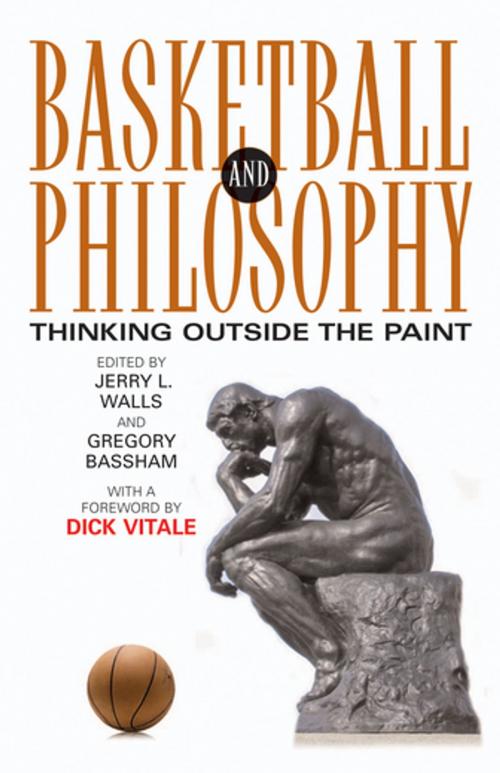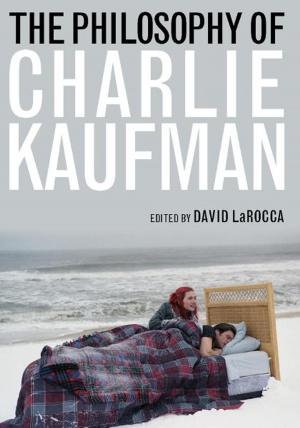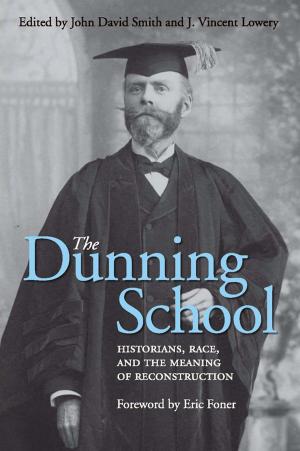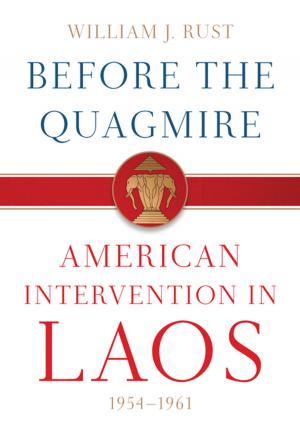Basketball and Philosophy
Thinking Outside the Paint
Nonfiction, Sports, Basketball, Religion & Spirituality, Philosophy| Author: | ISBN: | 9780813138145 | |
| Publisher: | The University Press of Kentucky | Publication: | March 9, 2007 |
| Imprint: | The University Press of Kentucky | Language: | English |
| Author: | |
| ISBN: | 9780813138145 |
| Publisher: | The University Press of Kentucky |
| Publication: | March 9, 2007 |
| Imprint: | The University Press of Kentucky |
| Language: | English |
What can the film Hoosiers teach us about the meaning of life? How can ancient Eastern wisdom traditions, such as Taoism and Zen Buddhism, improve our jump-shots? What can the "Zen Master" (Phil Jackson) and the "Big Aristotle" (Shaquille O'Neal) teach us about sustained excellence and success? Is women's basketball "better" basketball? How, ethically, should one deal with a strategic cheater in pickup basketball? With NBA and NCAA team rosters constantly changing, what does it mean to play for the "same team"? What can coaching legends Dean Smith, Rick Pitino, Pat Summitt, and Mike Krzyzewski teach us about character, achievement, and competition? What makes basketball such a beautiful game to watch and play? Basketball is now the most popular team sport in the United States; each year, more than 50 million Americans attend college and pro basketball games. When Dr. James Naismith, the inventor of basketball, first nailed two peach baskets at the opposite ends of a Springfield, Massachusetts, gym in 1891, he had little idea of how thoroughly the game would shape American -- and international -- culture. Hoops superstars such as Michael Jordan, LeBron James, and Yao Ming are now instantly recognized celebrities all across the planet. So what can a group of philosophers add to the understanding of basketball? It is a relatively simple game, but as Kant and Dennis Rodman liked to say, appearances can be deceiving. Coach Phil Jackson actively uses philosophy to improve player performance and to motivate and inspire his team and his fellow coaches, both on and off the court. Jackson has integrated philosophy into his coaching and his personal life so thoroughly that it is often difficult to distinguish his role as a basketball coach from his role as a philosophical guide and mentor to his players. In Basketball and Philosophy, a Dream Team of twenty-six basketball fans, most of whom also happen to be philosophers, proves that basketball is the thinking person's sport. They look at what happens when the Tao meets the hardwood as they explore the teamwork, patience, selflessness, and balanced and harmonious action that make up the art of playing basketball.
What can the film Hoosiers teach us about the meaning of life? How can ancient Eastern wisdom traditions, such as Taoism and Zen Buddhism, improve our jump-shots? What can the "Zen Master" (Phil Jackson) and the "Big Aristotle" (Shaquille O'Neal) teach us about sustained excellence and success? Is women's basketball "better" basketball? How, ethically, should one deal with a strategic cheater in pickup basketball? With NBA and NCAA team rosters constantly changing, what does it mean to play for the "same team"? What can coaching legends Dean Smith, Rick Pitino, Pat Summitt, and Mike Krzyzewski teach us about character, achievement, and competition? What makes basketball such a beautiful game to watch and play? Basketball is now the most popular team sport in the United States; each year, more than 50 million Americans attend college and pro basketball games. When Dr. James Naismith, the inventor of basketball, first nailed two peach baskets at the opposite ends of a Springfield, Massachusetts, gym in 1891, he had little idea of how thoroughly the game would shape American -- and international -- culture. Hoops superstars such as Michael Jordan, LeBron James, and Yao Ming are now instantly recognized celebrities all across the planet. So what can a group of philosophers add to the understanding of basketball? It is a relatively simple game, but as Kant and Dennis Rodman liked to say, appearances can be deceiving. Coach Phil Jackson actively uses philosophy to improve player performance and to motivate and inspire his team and his fellow coaches, both on and off the court. Jackson has integrated philosophy into his coaching and his personal life so thoroughly that it is often difficult to distinguish his role as a basketball coach from his role as a philosophical guide and mentor to his players. In Basketball and Philosophy, a Dream Team of twenty-six basketball fans, most of whom also happen to be philosophers, proves that basketball is the thinking person's sport. They look at what happens when the Tao meets the hardwood as they explore the teamwork, patience, selflessness, and balanced and harmonious action that make up the art of playing basketball.















